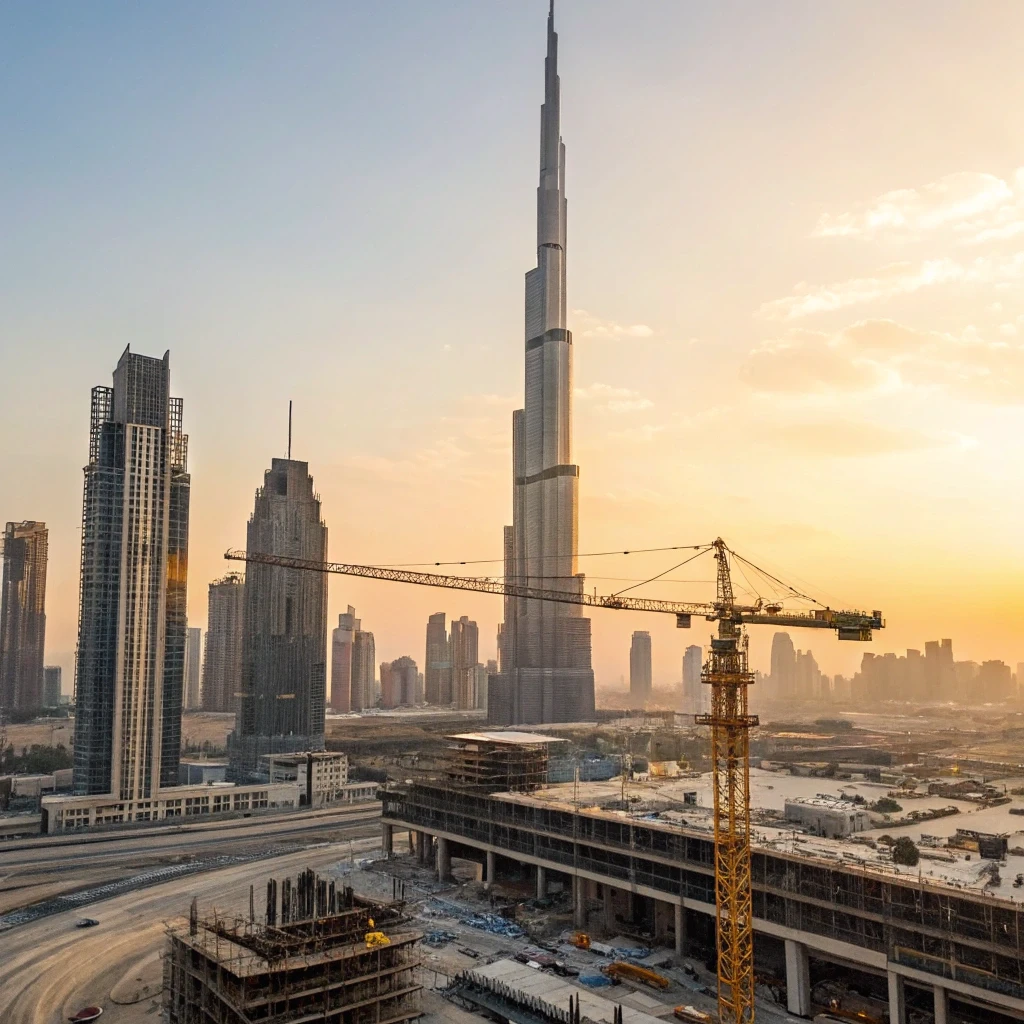Sevenx Properties in Dubai Real Estate Agency
Top Reasons Why Americans Are Investing in Dubai Real Estate in 2025

In recent years, a growing number of American investors have turned their attention toward Dubai’s real estate market—and in 2025, that trend is accelerating. From high rental yields and tax-free income to long-term residency options and global prestige, Dubai is offering US citizens a rare combination of financial opportunity and lifestyle value.
But why now? What makes Dubai more appealing to American investors than traditional property hotspots like Miami, New York, or even overseas cities like London?
Let’s break down the top reasons behind this shift—and why 2025 could be the most strategic time yet to invest in Dubai real estate from the USA.
1. Zero Income Tax on Rental Income
One of the biggest reasons Americans are exploring property in Dubai is the complete absence of income tax on rental earnings. While US-based investments are subject to federal and often state taxes, Dubai property income is tax-free locally.
This means that if you rent out your Dubai apartment or villa, the full rental income (typically yielding 5–8% annually) goes into your pocket—without deductions at the local level.
Of course, US citizens still need to declare foreign rental income to the IRS, but with smart deductions (mortgage interest, depreciation, management fees), the net taxable amount is often low.
2. Affordable Luxury Compared to US Cities
Compared to skyrocketing real estate prices in Los Angeles, San Francisco, or Manhattan, Dubai offers luxury living at a fraction of the cost.
For example:
A 2-bedroom apartment in Downtown Dubai can cost $500,000–$600,000
The same in NYC might exceed $1.2 million or more
Dubai’s off-plan market also gives early investors a chance to secure below-market prices with long-term installment plans, something rarely offered in US cities.
3. High ROI and Capital Appreciation
Dubai’s rental yields are among the highest globally, often ranging from 5% to 8%, especially in well-located areas like Dubai Marina, JVC, and Business Bay.
In addition, many US buyers are now tapping into off-plan properties—under-construction units that typically appreciate in value by 10–20% by the time of handover.
Whether you’re looking for passive income or a flip strategy, Dubai’s market provides the numbers to back it up.
4. Long-Term Residency Through Real Estate (Golden Visa)
Another big draw for Americans is Dubai’s property-linked residency programs. By investing AED 750,000 (~$204,000) or more, you may qualify for a 3-year investor visa.
If your investment crosses AED 2 million (~$545,000), you may be eligible for a 10-year UAE Golden Visa, offering:
Full residency without employer sponsorship
Family sponsorship rights
Business establishment freedom
Bank access, driver’s license, and education options
This is especially attractive for US citizens exploring international relocation, tax residency diversification, or global business access.
5. Ease of Ownership and Legal Transparency
Unlike many countries, Dubai has a straightforward property ownership process for foreigners. American citizens can:
Buy in 100% freehold zones
Own the property fully (with a title deed)
Register with the Dubai Land Department (DLD)
Get access to RERA-protected escrow accounts for off-plan purchases
No need for local partners, no hidden clauses, and a fully digitized property transfer process—even for overseas buyers.
6. Remote Ownership Is Easy and Secure
Many Americans worry about managing a foreign property. But Dubai’s professional property management industry solves this.
You can hire licensed agencies to:
Market your property
Screen tenants
Collect rent
Handle maintenance and disputes
Everything can be handled remotely, with contracts, payments, and reports available online. Some services even offer guaranteed rental returns or hands-off leasing models.
7. Global Recognition and Lifestyle Benefits
Owning property in Dubai isn’t just about numbers—it’s about global lifestyle appeal. Dubai is now ranked among the world’s top cities for:
Safety and cleanliness
Infrastructure and connectivity
Tourism and business ecosystem
Events like Expo 2020, COP28, and the upcoming RAK gaming zone
For American investors looking for prestige, lifestyle access, or a vacation rental model, Dubai delivers on every front.
8. Diversification Beyond the US Market
With inflation, interest rate hikes, and unpredictable policy shifts, many US investors are diversifying globally. Dubai offers a non-correlated, stable, and liquid real estate market, where you can:
Park capital in USD or AED
Hedge against US market volatility
Enjoy a secure investment under globally ranked regulations
Final Thoughts
If you're a US investor considering real estate abroad, Dubai is no longer a distant option—it’s a strategic move. In 2025, more Americans than ever are entering the market, taking advantage of tax-free income, investor visas, affordable luxury, and consistent ROI.
At Seven X Properties, we specialize in helping international clients—especially US-based buyers—navigate the Dubai property market with clarity, trust, and success.
Whether you're looking for a long-term rental, second home, or investment flip, we can guide you from search to signing—and beyond.
Frequently Asked Questions (FAQs)
1. Can a US citizen invest in real estate in Dubai?
Yes, U.S. citizens can legally buy property in Dubai in designated freehold zones such as Downtown, Dubai Marina, Business Bay, and Palm Jumeirah. Foreign investors are granted full ownership rights and receive a title deed from the Dubai Land Department (DLD).
2. Do Americans need residency to buy property in Dubai?
No. You do not need a UAE residency visa to buy real estate in Dubai. However, certain investment thresholds may qualify you for a 3-year or 10-year residency visa, such as the UAE Golden Visa program.
3. Is rental income from Dubai property taxable in the USA?
While Dubai does not charge income tax, U.S. citizens are required to report all global income, including rent from Dubai property, to the IRS. You can offset this income with deductions like mortgage interest, depreciation, and maintenance.
4. How much do properties in Dubai cost compared to US cities?
Property in Dubai is generally more affordable than in major U.S. metros. For example, a two-bedroom apartment in Downtown Dubai may cost around $500,000–$600,000, compared to $1.2M+ for a similar unit in NYC.
5. Can I manage Dubai property remotely from the US?
Yes. Dubai has a well-developed property management sector. Licensed agencies handle everything from tenant sourcing to rent collection and maintenance. All processes can be done online, with monthly reports shared digitally.
6. How do I get the UAE Golden Visa as an American investor?
To qualify for the 10-year Golden Visa, you must invest at least AED 2 million (~$545,000) in Dubai real estate. The visa allows full residency rights, family sponsorship, and business setup privileges. A 3-year visa is available for property investments starting at AED 750,000 (~$204,000).
7. What is the average ROI on Dubai property in 2025?
Most properties in prime or emerging communities offer rental yields between 5% and 8%, depending on location, unit type, and tenant demand. Off-plan investments may also see 10–20% capital appreciation by handover.
8. Are there financing options for Americans buying in Dubai?
Yes. Many Dubai-based banks and mortgage providers offer home loans to non-resident US buyers. Requirements typically include a 25–30% down payment, proof of income, and a clean credit record.
9. Is it safe for Americans to invest in Dubai real estate?
Absolutely. Dubai offers a highly regulated property market, with protections in place via the Real Estate Regulatory Agency (RERA), escrow accounts for off-plan purchases, and well-enforced legal contracts.
10. What are the best areas in Dubai for American investors?
Top picks include Downtown Dubai (luxury & centrality), Dubai Marina (high rent demand), JVC (affordable & fast-growing), and Business Bay (commercial-residential blend). The right choice depends on your investment goals and budget.
Frequently Asked Questions
A refundable security deposit of 5% of the annual rent will be expected to be paid on Landlords acceptance of Tenants offer to lease. This security deposit which is held by the Landlord and returned at the end of the term dependant on the condition of the property. You will need to pay your rent up front for the period of lease in the way of post-dated cheques depending on the terms of your agreement. Other costs will include 5% of the annual rent payable to the agency for commission plus 5% VAT. You will also need to budget for the deposits required to be paid for connecting your utilities such as water, electricity, televisions etc. 5% VAT is payable on services provided and will be incurred on utility charges.
A refundable security deposit of 5% of the annual rent will be expected to be paid on Landlords acceptance of Tenants offer to lease. This security deposit which is held by the Landlord and returned at the end of the term dependant on the condition of the property. You will need to pay your rent up front for the period of lease in the way of post-dated cheques depending on the terms of your agreement. Other costs will include 5% of the annual rent payable to the agency for commission plus 5% VAT. You will also need to budget for the deposits required to be paid for connecting your utilities such as water, electricity, televisions etc. 5% VAT is payable on services provided and will be incurred on utility charges.
To rent a property in Dubai, you generally need the following documents:
- A valid Emirates ID or passport for identification
- A residency visa
- A tenancy contract is a legal agreement between the tenant and the landlord outlining the terms and conditions of the rental agreement.
- A security deposit, which is typically equivalent to one month's rent
- Cheques or proof of payment for rent and any other fees associated with the rental agreement
- Ejari
In Dubai, the responsibility for paying service fees for a property is determined by the rental agreement between the tenant and the landlord.
In most cases, the landlord is responsible for paying the service fees. However, in some cases, the rental agreement may state that the tenant is responsible for paying a portion or all of the service fees. This would depend on the specific terms of the rental agreement.
The length of the contract can vary, but it is typically for a minimum of one year. However, landlords and tenants can agree to a longer-term contract if they want.






